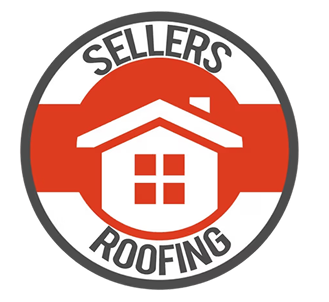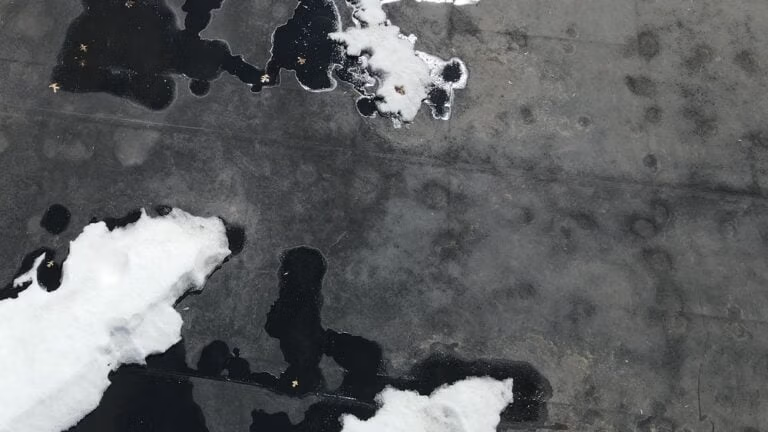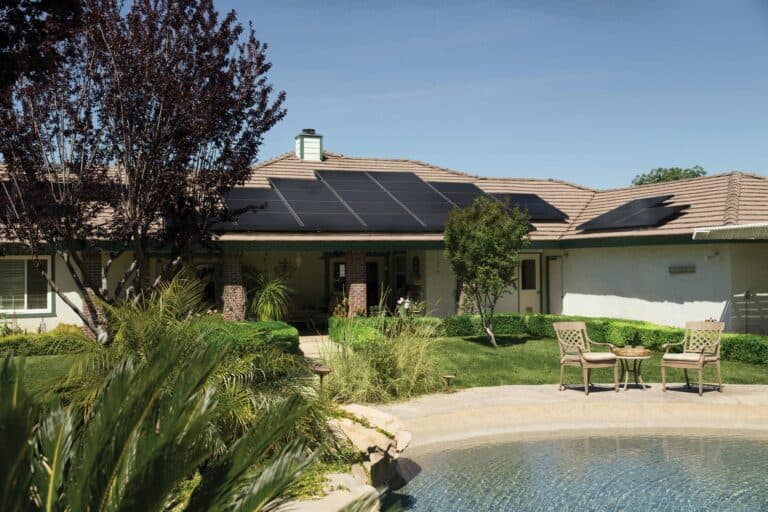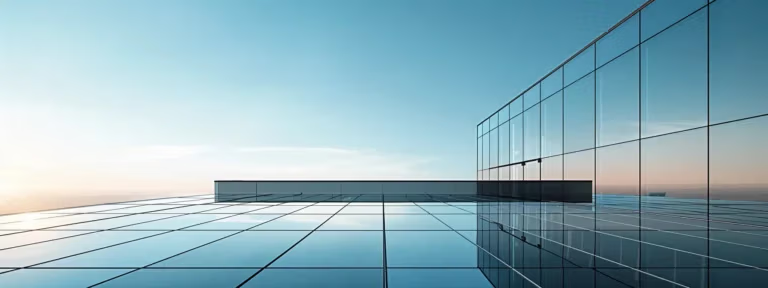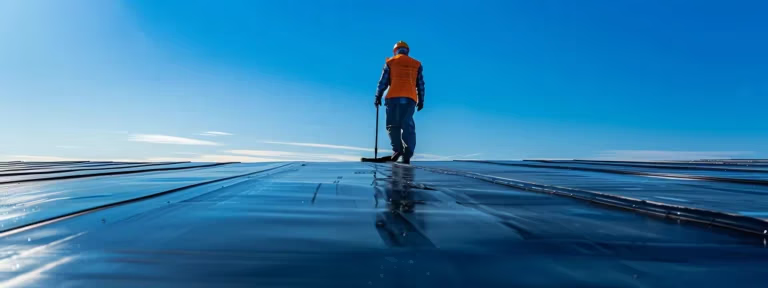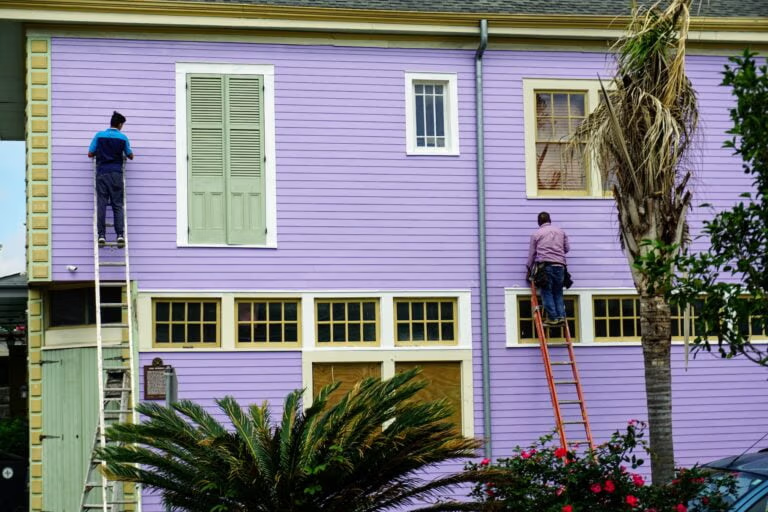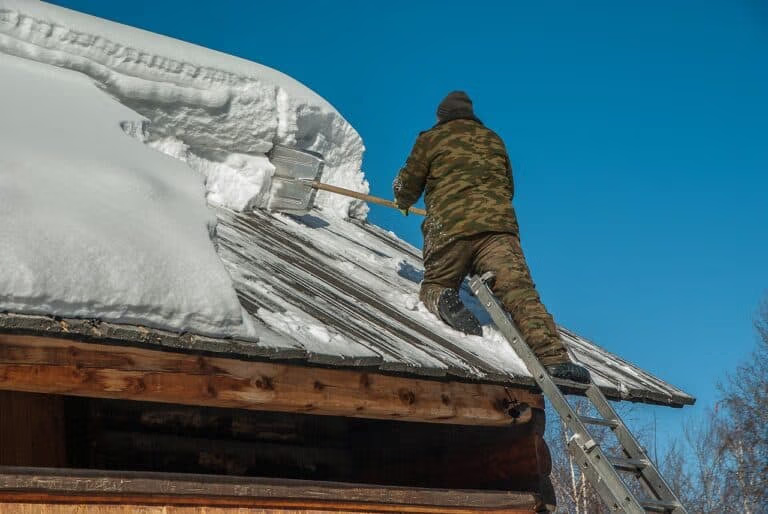Welcome to our comprehensive guide on commercial metal roofing. Here, we’ll explore the intricacies of selecting the best type of metal roofing for your business. With an emphasis on durability, longevity, and aesthetic flexibility, we aim to provide you with all the information you need, whether you’re constructing a new building or replacing an old roof.
Demystifying Commercial Grade Metal
What is Commercial Grade Metal? This term encompasses the higher durability and quality standards required of metal roofing materials for commercial buildings. Materials like steel, aluminum, and copper, each come with unique benefits, including corrosion resistance and energy efficiency, making them ideal for various commercial applications.
Common Commercial Roofing Materials
The most common commercial roofing materials include steel and aluminum. Steel roofs, known for their strength, are often coated to prevent rust, making them a durable choice for many commercial applications. Aluminum, lightweight and resistant to corrosion, is ideal for coastal areas. Both options offer long-term benefits and are recyclable, adding to their eco-friendly appeal.
Defining a Commercial Metal Roof
What is a Commercial Metal Roof? It’s more than just a cover for your building; it’s a long-term, energy-efficient, and aesthetically pleasing solution. These roofs are designed to meet the specific needs of commercial buildings, with customization options in color, design, and finish to suit any brand or architectural style.
Gauging Commercial Metal Roofing
The gauge of commercial metal roofing is a critical factor. The gauge number inversely indicates the metal’s thickness, with lower numbers indicating thicker metal. Thicker gauges offer more durability, making them ideal for commercial applications. The choice of gauge should be based on budget, climate, and specific building needs.
Durability and Longevity
Commercial metal roofs are designed for long-term performance. Their ability to withstand extreme weather conditions, coupled with lifespans of 40 to 70 years, make them a wise investment for businesses seeking stability and minimal maintenance.
Cost-Effectiveness and Energy Efficiency
While the upfront cost of metal roofing can be higher than other materials, their longevity and minimal maintenance make them a cost-effective solution in the long run. Additionally, their ability to reflect solar heat can lead to significant energy savings, reducing cooling costs and benefiting the environment.
Aesthetic Appeal and Design Versatility
Metal roofs offer a range of aesthetic options. With various colors, finishes, and designs available, they can be tailored to enhance any commercial building’s appearance, potentially increasing property value and improving brand image.
Installation Process and Tips
Proper installation is key to the performance of a metal roof. While professional installation is recommended, DIY enthusiasts should approach the task with care, understanding the complexities involved. Safety should always be a priority, and expert consultation can be invaluable.
Maintenance and Care for Metal Roofs
Regular inspections and cleaning are crucial for maintaining the integrity of a metal roof. Addressing minor issues promptly can prevent them from escalating, ensuring the roof remains in optimal condition for years to come.
Educational Insights on Commercial Roofing
Staying informed about the latest in commercial roofing is essential for making the best choices. Engaging with industry experts, reading publications, and attending educational events can provide valuable insights into new technologies and best practices.
Making the Right Roofing Choice
Selecting the right metal roofing for your commercial building involves careful consideration of several factors, including material choice, gauge, durability, and energy efficiency. By being informed and considering these aspects, you can choose a roofing solution that not only meets your immediate needs but also aligns with your long-term business objectives. Remember, an informed decision today can ensure a secure and prosperous future for your business.
FAQ
What Is the Average Lifespan of a Commercial Metal Roof?
Answer: The average lifespan of a commercial metal roof typically ranges between 40 and 70 years. However, this can vary based on the type of metal used, with materials like copper and zinc having the potential to last over a century under optimal conditions.
How Does Metal Roofing Compare Cost-wise to Other Commercial Roofing Materials?
Answer: Initially, metal roofing can be more expensive than some other materials. However, its long-term cost-effectiveness is excellent due to its extended lifespan and low maintenance requirements. Over time, a metal roof can be a more economical choice due to fewer repairs and replacements.
Are There Eco-Friendly Benefits to Choosing Metal Roofing for Commercial Buildings?
Answer: Yes, metal roofing is an environmentally friendly option. It often contains a significant amount of recycled material and is 100% recyclable at the end of its life. Additionally, its reflective properties can reduce cooling costs, making the building more energy-efficient.
Can Commercial Metal Roofing Be Customized to Fit Specific Architectural Styles?
Answer: Absolutely. One of the major advantages of commercial metal roofing is its versatility in design. It’s available in a wide range of colors, finishes, and shapes, allowing it to fit various architectural styles, from modern to traditional.
What Maintenance Is Required for a Commercial Metal Roof?
Answer: Commercial metal roofs require relatively low maintenance. Routine maintenance includes regular inspections, keeping the roof free of debris, ensuring that gutters and downspouts are clear, and checking for any signs of damage or wear.
